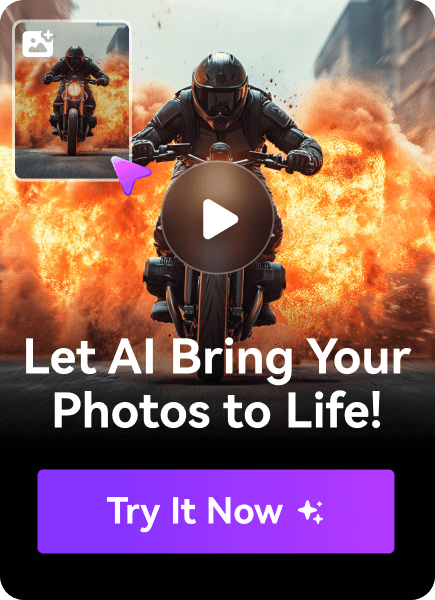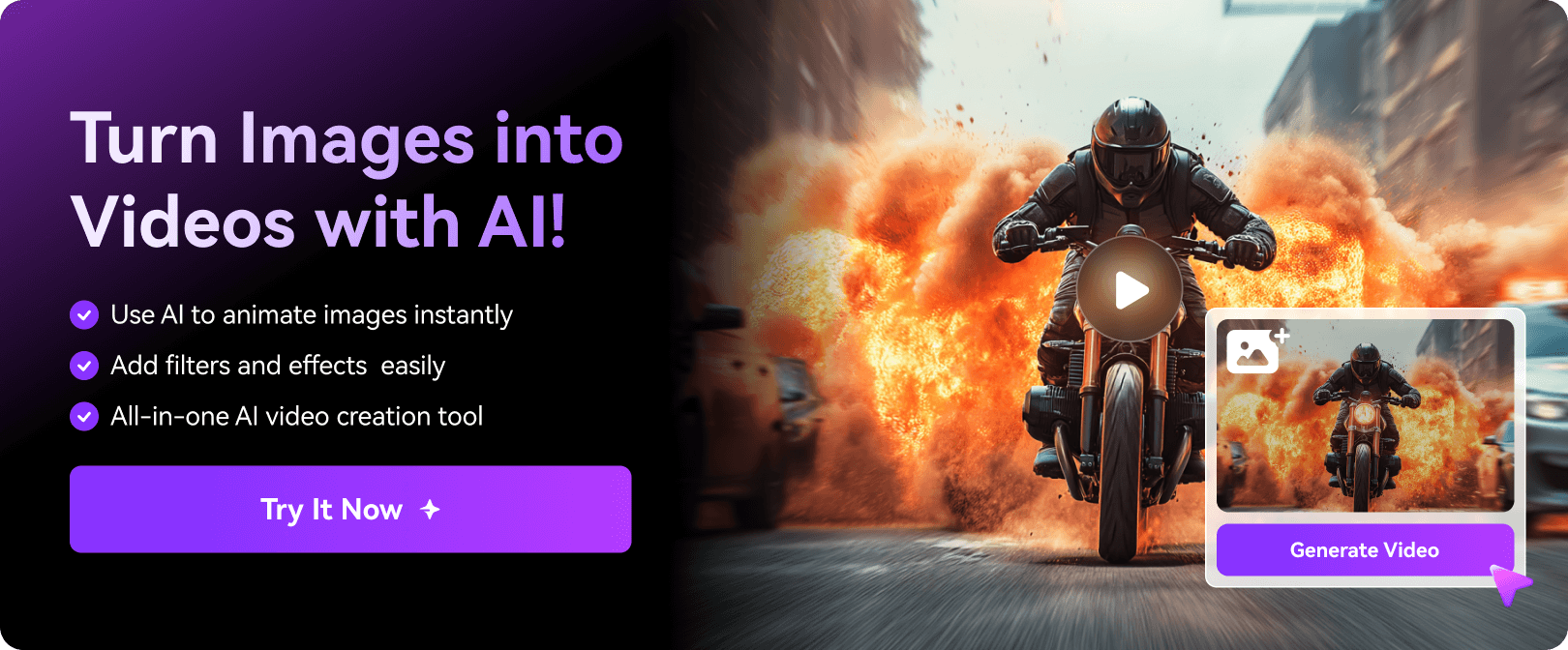Video advertising is the next best thing and you would agree with me if you’ve been even remotely active online lately. It has taken over the internet and everyone wants to jump onto the video marketing bandwagon. Why? Because audiences spend almost 17 hours a week watching online videos, and marketers want a slice of it.
The concept has gained popularity because video content allows advertisers to convey their message effortlessly to target audiences. It captures the viewer’s attention and engages them in a way that the message lingers on even after the video ad is over.
So the question is how can you use this marketing tool efficiently to boost your business? That’s what I am here for. I will take you through the basics of why video advertising matters, what makes it click with viewers, and how you can easily create videos with top online AI video creation tools. Let’s begin.
In this article
What Is Video Advertising?

Video advertising is a marketing strategy where a brand, product, or service is presented in the form of a short, engaging video clip. The goal is to capture the viewer's attention, convey the message, and drive action such as purchases or clicks. While it sounds simple enough, creating a video that leaves a lasting impression is a task for even the best brand managers.
Video ads aren’t a new marketing approach but one that has proved successful for over 8 decades. The first-ever video commercial aired in 1941, marking the beginning of ‘The Golden Age of TV Advertising.’
However, consumers drifted towards more exciting entertainment avenues such as YouTube and other social media platforms by 2013. That’s when online video advertising came into the limelight.
It began with YouTube and quickly spread across Vine, Facebook, Snapchat, TikTok, Instagram, and other social media networks. But this marketing strategy isn’t limited to social media; it includes video ads promoted on various websites and mobile apps.
Why Do You Need Online Video Ads In Your Marketing Strategy?
An effective marketing strategy uses different ways to create brand awareness, generate customer interest, and encourage action. In today’s dynamic business environment, advertisers need to approach customers creatively to make an impact.
Since 91% of customers want to see brands post online video content, digital video ads become the logical choice. Online video marketing is an indispensable tool for businesses of all sizes for these reasons:
1. Attracts Customers
Visuals capture attention quickly compared to text. That’s why online video ads engage viewers for longer and help retain the conveyed message.
2. Builds Trust And Credibility
Customers are more likely to trust brands that give a face to their business. By telling their unique story, and showing real people and testimonials, brands create a connection with their target audience.
3. Drives Conversions
Video content helps customers understand what a brand is truly offering. This helps them commit to the product or service quickly, reducing the customer journey.
4. Boosts Brand Awareness
Video content can be shared effortlessly across social media platforms. This makes it easier for brands to attract new customers and scale their business.
Marketers claim that video ads are a great return on investment but at the same time, they are becoming more expensive to sustain. As the digital video world is constantly changing, brands need to understand what audiences want to create valuable and relevant content.
Types Of Video Ad Formats
Video ads can be short or long advertisements that play before, during, or after a video. These ads have different formats, and you can choose one according to the impact you want to make on the viewer.
1. Bumper Video Ads

Bumper ads are short - not more than six seconds long. The advertisement can play before, after, or in the middle of a video. They can’t be skipped or fast-forwarded and work best for creating brand awareness.
2. Pre-Roll Video Ads

As the name suggests, this ad appears before you play a video. They last for around 15 seconds and you can’t skip or fast-forward them. Pre-roll ads are a popular choice because they keep viewers engaged for longer.
3. Mid-Roll Video Ads

Mid-roll ads appear when the viewer is watching the main video content, like a typical commercial break on television. The ad's length depends on the platform and the type of content.
4. Post-Roll Video Ads

Key to conversions, post-roll ads are displayed at the end of the marketing video. Since the viewer has watched the complete video, the chances of them committing to related brands are higher.
5. Native Ads

You will often find native ads on vlogs, vloggers’ channels, social media networks, and news sources. The ads are presented in a non-intrusive way, blending into the content seamlessly.
6. Instream Video Ads

Instream ads are integrated into other videos on platforms like YouTube, Facebook, and Instagram. They can show up before, during, or after the main video, providing a smooth viewing experience.
7. Outstream Video Ads

Outstream ads are flexible and don’t need a video player. Instead, they can be placed across websites and apps as banners, interstitials, in-feed ads, and native ads. The ads play with no sound and if the viewers are interested in the content, they can unmute and watch.
8. Shoppable Video Ads

Shoppable video ads allow viewers to buy products directly from ads they see on different platforms. These ads appear as images or videos and shoppers can purchase the product or service advertised without leaving the app or website they are on. You can mostly find shoppable video ads on Instagram, Facebook, and TikTok.
How Video Ads Work On Social Media?
With more than 5 billion users around the world, social networks are ideal for advertising video content. Since most users enjoy video content, businesses try to reach their customers through video ads on social media.
The videos are usually short and designed to attract users’ attention quickly. They can either present their product or service in a traditional ad or use creative ways to capture interest.
Either way, marketers have a small time window to pique user interest. Hence, the video should stand out, inform, and entertain - all at the same time. Keep in mind that every social media channel has a different user base. Therefore, brands need to decide where their target audience is and how they can impress them.
The most popular social media platforms for advertising include:
- YouTube
- TikTok
- Snapchat
- Quora
Let’s compare top social media advertising channels so you can decide which network best fits your marketing strategy.
1. FaceBook

Most dominating social media platform, FaceBook boasts 26.7% of the total social media user base. Most users are between the ages of 25 and 34, but there is a sizable representation of people over 65. Since the platform requests information like age, gender, location, interests, hobbies, and more when someone signs up, it’s easier for marketers to target a specific audience.
Advertising video on FaceBook is relatively simple. The network has an intuitive ads platform that helps users set up a campaign, select video placement, and launch a video ad in minutes. All this can be done with the FaceBook Ads Manager.
2. Instagram

Instagram has around 1.48 billion users, mostly within the 18- to 34-year-old age group. Advertising on Instagram is different from traditional commercials. It resembles User-Generated Content and focuses on people showing off products or services.
The platform allows minute-long video ads so marketers have to make the most of it. The content is short, flashy, and impactful to create a lasting impression. They can choose between in-feed video ads, story ads, sponsored reels, and carousel video ads.
3. YouTube

YouTube is the second most dominant social media platform with 2.56 users worldwide. It attracts 32.4% of the population and the most active users are between 25 and 34. These numbers show that this platform is too important to ignore in a b marketing plan.
There are different ways to advertise video content on YouTube. You can choose from skippable in-stream ads, non-skippable in-stream ads, bumper ads, out-stream ads, masthead ads, and overlay ads. Depending on which format best suits their offering, brands can engage their target audience on YouTube.
Get Inspired By Online Video Ad Examples
How many times has a video ad pulled you in while going through your feed? I know it doesn’t happen often but when it does, you know the marketer has done a great job. Good video ads are engaging, memorable, and leave an impression on you. They stand out from the sea of content available on social media and drive conversions.
Here are some online video ads that I just couldn’t ignore. Feel free to get inspired. If you find one that your audience will appreciate, save it and search for a similar video ad template. You can check out Wondershare Virbo’s template gallery for different video styles and streamline your video creation process with ease.
Let’s dive right in.
1. Skillfinity

Source: @Skillfinity Intro
A lot of elements are working for this animated video. It is quirky, visually appealing, and funny. The marketer has used the accomplished stick figure, John to tell a compelling story in a ‘casual’ way.
The voiceover is unique and adds character and humor to the video. There’s never a dull moment and viewers feel connected to John throughout the ad. I think this video commercial has successfully presented the brand’s selling points without sounding boring.
2. Volvo: XC60

Source: @XC60: The Parents
The video opens with a couple finding out that a baby is on its way. The ad builds momentum with a dynamic background score while highlighting the everyday struggles of raising a kid.
The ad showcases how the parents baby-proof their home to keep them safe without actually showing the advertised product. However, the video ad ends on an emotional note when the overly tired mom is saved by the car’s safety feature. Suddenly, the caregiver is rewarded with a car that keeps them safe.
The marketer has succeeded in engaging the audience with a relatable and emotional storyline. The ad manages to build trust and customer loyalty effectively.
3. Metro Trains - Dumb Ways To Die

Source: @Dumb Ways to Die
With over 319 million views on YouTube, this is a perfect example of a video ad done right. The animated video delivers a serious safety message wrapped in dark humor and cute animated characters.
The catchy and memorable background score has all the elements of a viral song. It is quirky and upbeat, enough to stay with audiences well after the video is over. The ad delivers an important message about train safety without sounding dull.
4. Coca Cola Masterpiece

Source: @Coca-Cola® Masterpiece
This ad is truly a visual masterpiece that keeps audiences engaged from start to finish. The way the screen comes alive is unparalleled. The ad subtly reinforces the brand’s iconic status and relevance through the years.
Coca-Cola marketers have opted for a fun and light-hearted theme for the video ad. The storyline is simple with compelling visuals and a deeper message. The wink at the end is an understated reminder that everyone just wants to enjoy Coca-Cola.
5. Temple & Webster

Source: @Temple & Webster — 30-sec Commercial
Temple and Webster’s 30-second TV commercial ad showcases the brand’s wide range of furniture and homewares. What makes it stand out is that the brand has used a relatable couple and a fun storyline to deliver its message.
The video ad is short, cute, and impactful. Real-life actors are a great addition to this video as they add credibility and help build trust in the brand.
Measuring A Video Ads’ Success
A good marketing strategy isn’t static - it keeps on changing and evolving. Brands constantly evaluate how well their video ads are performing and if they are ultimately driving conversions. While a large business has a team of marketers on this job, small and medium-sized businesses often struggle with measuring their video ads’ success.
The following metrics help assess the impact of a video ad campaign.
1. View Count
The number of views on a video indicates how far the ad has reached its target audience. This metric is usually the first to be considered when measuring an ad’s success.
2. Watch Time
How long did the target audience watch your video ad? A higher watch time means that you managed to draw the viewer in and keep them engaged long enough to deliver your message.
3. Completion Rate
Did the audience stick around till the end? When more viewers watch the entire ad, it shows the video is interesting and relevant to the targeted audience.
4. Social Shares
The number of likes, shares, and comments on a video on social media indicates the brand’s image and perception in audiences. More shares equal more engagement and ultimately improved organic growth.
5. Conversions
Ads are created to encourage action. Hence conversion metrics, such as page visits, on-page completion rate, and click-through rates help understand if the audience took a valuable action after watching the video ad.
6. Return on Investment (ROI)
ROI tells you if you have made enough money to justify the amount spent on creating and placing the video ad. A positive ROI is a good indicator while a negative ROI means you are spending more and earning less.
The Cost Of Video Marketing On Social Media
Social media advertising is relatively affordable, especially for growing brands with a limited budget. However, the cost depends on your industry, target audience, competitiveness of keywords, and the platform you choose.
Here’s a quick comparison of how much ads cost across popular social platforms.
Average cost per click: $0.44
Average cost per mile: $14.40
Average cost per click: $0.20- $2.00
Average cost per mile: $6.7
- YouTube
Average cost per view: $0.10- $0.30
Average cost per mile: 20
- TikTok
Average cost per click: $1
Average cost per mile: $10
Average cost per click: $0.10- $1.50
Average cost per mile: $2- $5
Promoted tweets: $0.50- $2.00
Promoted accounts: $2- $4
Promoted trends: $200,000 per day
Average cost per click: $5.26
Average cost per 1000 impressions: $6.59
Average cost per paid message sent: $0.80
Top AI Video Creation Tools
1. Wondershare Virbo

If you want to create video ads that drive conversions on a budget, Wondershare Virbo is a great option. This tool is beginner-friendly and helps users create videos quickly from texts, URLs, and images.
Virbo uses AI features such as custom avatars, taking photos, and voice cloning to create bespoke video ads that resonate with your target audience. You can use this marketing tool to streamline your video marketing strategy with minimum effort.
Key Features
- Custom AI avatars that help build trust
- Custom and realistic voiceovers
- Converts URLs into engaging video ads
- AI Video Translator to expand your ad reach
- AI Montage Maker helps create video from media
- A monthly paid plan costs $9.9
- A yearly paid plan ranges between $19.9 to $199
2. Runway

Source: https://runwayml.com/
Another video-creating tool you shouldn’t miss out on is Runway. The platform uses AI to create high-quality videos and images from text descriptions or still images. You can generate engaging videos for social media content quickly with this tool.
Key Features
- Text-to-video
- Image-to-video
- Text-to-speech
- Allows real-time video editing
- A monthly plan varies between $12 and $76
Create A Quick Video Ad With Virbo
Wondershare Virbo allows users to convert text, audio, or links into attention-grabbing videos without any watermark. Whether you want to create a product demo or a video ad, Virbo has you covered. Here’s a guide on how to create a video with Virbo online.
- Open Wondershare Virbo on your PC

- Select AI Video Generator using the Features drop-down menu,

- Click the tab, Create Videos Free.

- Select Video Template from the left menu and choose Advertisements.

- Choose a template you like and customize it with avatars, backgrounds, text, stickers, and music.

- When you’re done, preview the video and export it to your PC

Best Practices For Your Next Video Ad
Well-placed video ads can help create brand awareness and convert viewers into paying customers. However, you should keep a few things in mind when creating video content.
- Focus on promoting your brand’s personality more than the actual product.
- Place your logo strategically in the video so that it doesn’t look distracting on the screen.
- Make sure that the audio includes your brand’s name as many users listen to videos rather than watching them.
- Display your logo within the first 5 seconds to ensure brand recognition.
- Start the video with creative elements that grab attention.
- Evoke emotions with your content to make the ad memorable.
- Don’t forget to include a call to action.
- Personalize your video ads for different social platforms for maximum impact.
Future Trends In Video Advertising
Video ads have taken center stage in marketing strategies and for good reason. However, their relevance and effectiveness depend on how well marketers adapt to changing consumer behaviors and advancements in technology. Here are 3 video marketing trends to look out for:
1. AI-Driven Ads
AI is changing the way brands market content. The more sophisticated it gets, the better it will analyze consumer behavior, interests, and mood. By leveraging AI, businesses can target their ideal audience and optimize ad placements so that the right video ad is played at the best time.
2. Shoppable Videos
This is a relatively new ad format but it’s constantly growing in popularity. The choice to purchase featured products directly from a video ad is very appealing to viewers. These ads drastically minimize the customer’s journey, resulting in improved conversion rates.
3. Unique Content
An average user sees around 4,000 to 10,000 ads in a day across different platforms. The competition to make your video ad stand out is tough. Hence, brands need to create ads that highlight their unique values and feel authentic.
Wrapping It Up
Online video advertising is a sure way to connect with your target audience. When done smartly, you can advertise your brand and product in a way that’s memorable. Once you have established trust, customers will engage and respond to your video ads, allowing your brand to grow organically.
I hope this guide helped you understand the basics of video ads and how to use them in your marketing mix. If you’re interested in making video content, Wondershare Virbo is a great place to start exploring your creative ideas!



